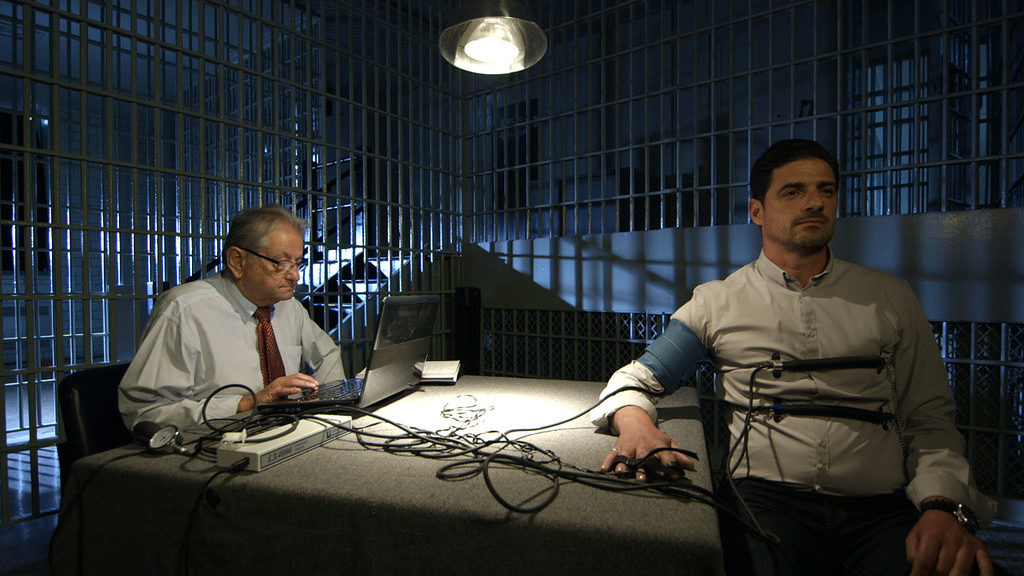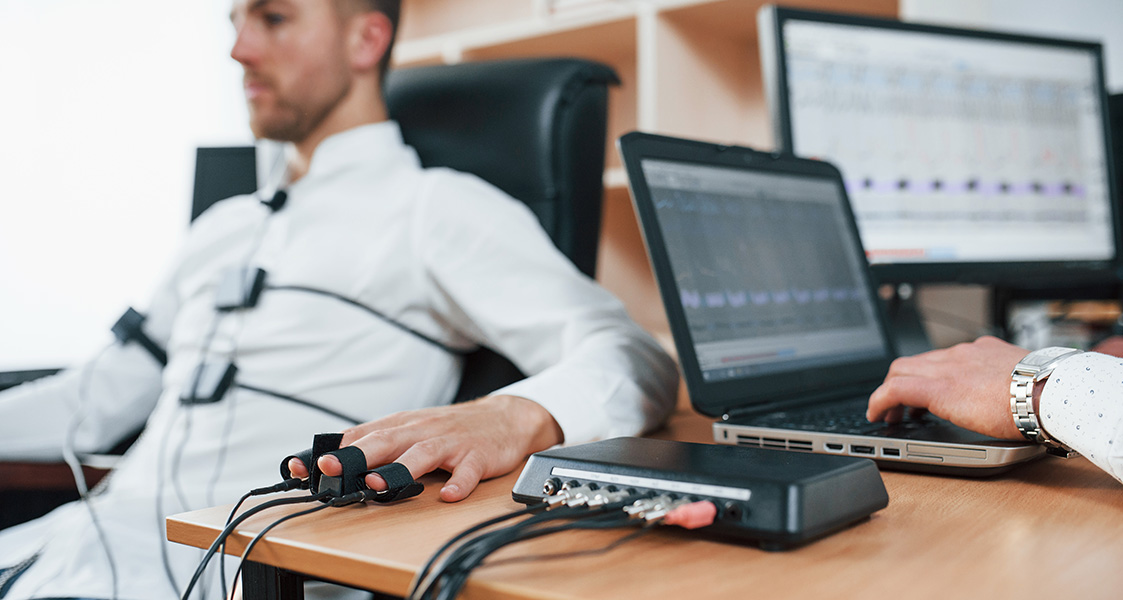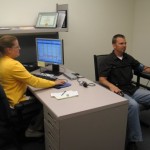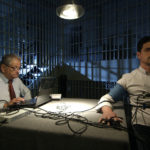Why would someone facing criminal charges agree to a polygraph exam?
Should I take a polygraph examination if the police ask me to take one? Are polygraph results admissible in court? Here is what you need to know about the role of polygraph tests in criminal cases.

How to Know if a Polygraph Test is in Your Best Interest
Deciding whether to submit to a lie detector test is complicated. The wrong choice can be disastrous. Someone should never participate in a private or police polygraph examination without the advice of a seriously experienced criminal defense attorney and understanding the role of polygraph tests in criminal cases. Although polygraphs are generally inadmissible, they can be invaluable tools in negotiations for dismissed or reduced charges and while advocating for a lenient sentence. Usually, it is in someone’s best interest to determine if they are physiologically a good candidate by taking a private polygraph before a law enforcement test.
Can a passed polygraph test be used to stop criminal charges from getting to court?
If someone has not yet been charged in court, a polygraph can provide powerful leverage against formal criminal charges. Suppose someone is accused of assault. In many assault cases, there is no physical evidence or eye witness. For example, someone might claim they were pushed but not suffer injuries. In such a case, criminal charges will be filed unless a skilled defense lawyer can persuade the prosecutor to deny a warrant request from the police department. One strategy might be for the client to take a polygraph to prove they did not push the alleged victim. In he-said-she-said cases, many prosecutors will not proceed if the suspect passes a lie detector test.
If the police ask for a polygraph test, is that good?
Police rarely ask for polygraph examinations because they care about whether the subject passes or fails. Police build cases and search for evidence to obtain convictions. Generally, police officers and detectives ask for polygraph examinations because an expert interrogator (i.e., polygraph examiner) gets an opportunity to question someone suspected of wrongdoing. They hope to obtain a confession or incriminating statement. For this reason, it is vital that someone accused of a crime only agree to a police lie detector test with the advice and consent of a defense lawyer and only after taking a private polygraph test.
Why Would a Lawyer Recommend a Private Polygraph?
There are various reasons a defense attorney might recommend a private or law enforcement lie detector test. You can better understand the purpose of polygraph tests once you understand their role in criminal cases.
- Building a Defense: Attorneys may recommend to their clients that they undergo a private polygraph to collect information that could be used in their defense. Although the results may not be admissible in court, they can provide valuable insights into a client’s credibility and assist attorneys in identifying potential areas of concern.
- Negotiation Tool: In plea bargaining and settlement discussions, private and law enforcement polygraphs can be used as a negotiating instrument. If a client passes a test and demonstrates their honesty, it may convince the prosecutor to reconsider their position or even result in a more favorable outcome.
- Mitigating Damage: In certain instances, a lawyer may recommend a private polygraph to mitigate potential reputational harm to a client. Public figures or individuals involved in high-profile cases may use a passed polygraph to demonstrate their innocence to the public, even if the results are not admissible in court.
- Sentencing Mitigation: Following a conviction, a judge must impose a sentence. Sometimes, judges and prosecutors make incorrect and detrimental assumptions about a defendant or their offense. In these situations, a polygraph can help persuade a judge to focus more on rehabilitation instead of punishment or assist a defense lawyer in their argument for lower sentencing guidelines.

If I agreed to take a polygraph examination, do I still have to follow through and take it?
No. If a police or law enforcement polygraph exam is not in your best interest, a lawyer can contact the police department and cancel the examination. An experienced defense lawyer will know how to cancel the examination and not make it reflect poorly on you. A lawyer’s role is to protect clients taking polygraph tests in criminal cases.
Can the police lie about the result and claim I failed when the results showed I was truthful?
Yes and no. Lying is a widespread and accepted practice of polygraph examiners and police investigators. Police officers and polygraph examiners use lies to trick or manipulate a person into making an admission, confession, or inculpatory statement. Remember, the polygraph examination procedure is as much, if not more, about the opportunity to interrogate a suspect and obtain evidence, as it is about the polygraph test results. This said, the polygraph examiner will generally provide a report and be truthful with the prosecutor, Officer in Charge, and defense lawyer.
The Process of a Polygraph Test in Criminal Cases
Pre-test Interview: Before the actual polygraph examination, the examiner conducts a comprehensive interview with the examinee to acquire background information, test psychological responses, and formulate pertinent questions.
The Polygraph Examination: The examinee is connected to numerous physiological monitoring devices during the examination. The examiner then asks the subject a series of predetermined queries while monitoring their physiological responses.
Data Analysis: After the test, the examiner analyzes the data to determine whether specific queries elicited significant physiological responses. The examiner reaches conclusions regarding the subject’s veracity or deceit based on the analysis of the physiological data.
Reporting: For private polygraphs, the examiner provides a report of the test results to the defense lawyer. In the case of law enforcement lie detector tests, the results are provided to the lead detective, who then gives them to the prosecutor and defense attorney.
Use in Legal Strategy: The defense attorney and client then determine what role the polygraph test will play in the criminal case. They can then determine how to incorporate the test results into their legal strategy, whether for constructing a defense, conducting negotiations, or managing the client’s reputation.
The Limitations and Risks of Polygraph Tests in Criminal Cases
One of the primary risks is the potential for false positives, where truthful individuals are inaccurately identified as being deceptive. Conversely, false negatives can also occur, wherein deceptive individuals are wrongly identified as truthful. Skilled liars or individuals using countermeasures can sometimes manipulate the test results. Another significant limitation is that polygraph tests are not foolproof in determining truth or deception, as they measure physiological responses associated with deception, rather than directly measuring deception itself. These physiological responses can vary widely between individuals, and there is no universal indicator of deception.
The interpretation of polygraph results is subjective and depends on the examiner’s expertise and bias, which can lead to inconsistencies and errors. Due to these concerns, Michigan limits the admissibility of polygraph results in court, and they are not considered conclusive evidence of guilt or innocence.
What is the role of polygraph tests, and are they admissible in court?
Generally, not. There are exceptions when a polygraph result may be admissible in an evidentiary hearing on the issue of credibility. Unfortunately, many defense lawyers do not know how to use a favorable polygraph examination. With skilled defense counsel, such as the attorneys with LEWIS & DICKSTEIN, P.L.L.C., a lie detector test can be an invaluable tool in seeking the dismissal or reduction of criminal charges.

Is it true that some people cannot pass a police-requested polygraph exam even if they are truthful?
Yes. Clients often say they have no “fear” of a polygraph because they know they will be truthful. Unfortunately, telling the truth is not enough. In some cases, our client must take a private polygraph examination before agreeing to participate in a public polygraph. By taking a private test first, we will know whether there is a physiological issue interfering with the results. People sometimes have emotional responses when they tell the truth and sometimes do not emotionally respond when lying. A polygraph machine is not a lie detector. It will register false positives and negatives and vary from one test to the next. Some people will test more accurately than others.
If I am nervous or anxious, will that affect the polygraph?
Possibly, but probably not. The truth is that virtually everyone is nervous, upset, and anxious when taking a polygraph. Nerves and anxiety alone have no impact on a polygraph’s result. As stated above, some people have stronger emotional responses to lying and telling the truth. It is crucial for the defense lawyer to accurately assess and vet a client to make sure they are making the right choice.
Should I take a polygraph exam?
Whether or not to take a polygraph examination is a question that you should not answer on your own, even with advice from the internet or friends. The answer to this question is complicated, and you need the assistance of a lawyer with decades of experience dealing with these issues. Making the wrong choice can result in charges that could have been avoided. The defense team with LEWIS & DICKSTEIN, P.L.L.C. has handled cases where polygraph examinations have had a positive impact in the following areas:
- Drugs (Delivery, Manufacture, and Possession)
- Criminal Sexual Conduct (CSC)
- Child Abuse
- Child Pornography
- Embezzlement
- Fraud
- Robbery
- Assault
- Domestic Violence
- White Collar Crimes
- Weapons Offenses
- Violation of Probation
- Homicide (Murder)
- Probation Violation
A highly experienced criminal defense law firm can help you decide whether to take a lie detector test or polygraph examination.

The Michigan Criminal Defense Power Law Firm
If you are asking yourself, “Should I take a polygraph exam?” you need the help of a seriously experienced criminal defense lawyer. The defense team with LEWIS & DICKSTEIN, P.L.L.C. has decades of experience protecting and helping clients make these complex and strategic decisions. Our team of criminal defense lawyers protect and defend clients in state and federal courts throughout Michigan. Call us for a free consultation. We can discuss the role of polygraph examinations in criminal cases, answer your questions, and work with you to develop a winning strategy.
Call us today at (248) 263-6800 for a free consultation or complete an online Request for Assistance Form. We will contact you promptly and find a way to help you.













